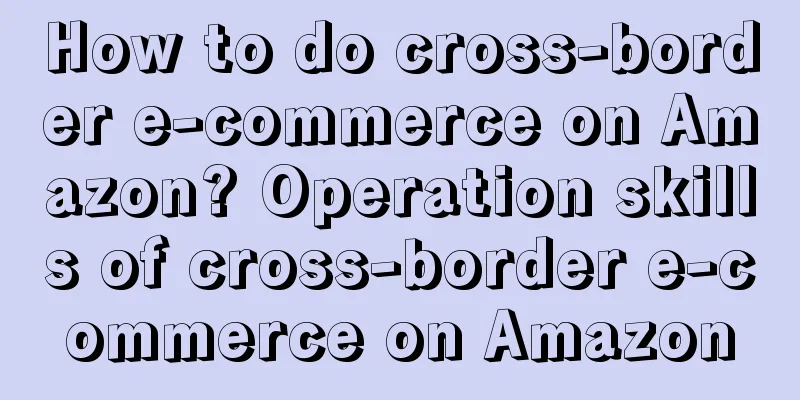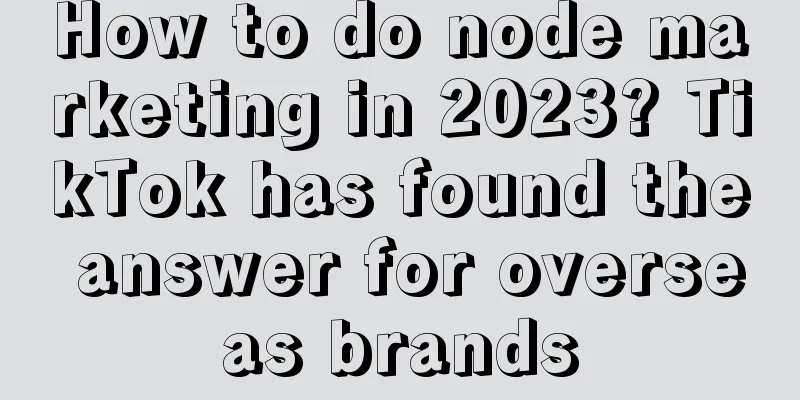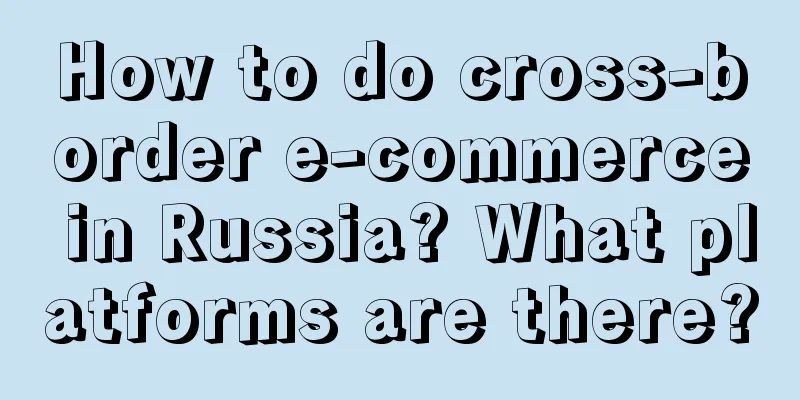I spent more than 10 million yuan to develop a new brand private domain model

In the past year, Congkan and his entrepreneurial team have invested tens of millions to explore private domain models. Finally, they found their new position in the private sector: Help more mid-to-high-end brands and high-quality traffic owners who want to do a good job in private domain to operate private domain membership, enhance member stickiness, and improve the quality of private domain. The series calls this "building an independent website for a brand." Although the term "independent website" is no longer a new term in cross-border e-commerce, it is still a new term in the domestic private domain track. After finding the right positioning, they served brands and customers such as the duty-free shopping platform "Lvgouxing", Taobao's No. 1 women's clothing "CHICJOC", and the high-end confinement club "Mennuo" in the past year. In this process, they helped Lvgouxing bring in more than 100 million in sales and a 30% repurchase rate in the private domain, helped "CHICJOC" achieve 25% private domain retention, and helped "Mennuo" increase its customer service cycle by 6 months. Judging from the data growth, in the dilemma of increasing public domain prices, it is not a bad idea for brands to turn to private domain independent sites! Congkan told Jianshi that the "Zuo" in Zuomeng Technology has two meanings. One is to assist more brands to do a good job in member rights. The second is to be like the "Zorro" in the American movie "Zorro" who "robs the rich and helps the poor". They want to "rob the public (domain) to help the private (domain)" by connecting all domain members! Let the brand have the ability to play games with the public domain. "We are challenging a market that seems unchangeable." Congkan mentioned what the team is doing and said that the breakthrough for the team to do this well lies in the "supply chain that brings its own traffic"! Jianshi has always maintained close contact with Congkan. He has 12 years of work experience in the duty-free industry. In 2021, his first startup company, Lvgou Technology, was strategically acquired by Sunrise Duty Free. He led the team to join China Duty Free Group’s new e-commerce platform "China Duty Free Sunrise" and became the vice president of e-commerce of China Duty Free Sunrise Internet Technology Co., Ltd. Therefore, he has his own barriers in big-name authentic products and duty-free shop expiring products. They regard these products as one of the brand membership rights, and connect them with the brand points system to provide brand members with more benefits and improve user stickiness. In addition to the supply chain, the team also provides support services such as operation support and tool support. It hopes to use this complete system to bring new conversions and repeat purchases to the brand. So how does Zuomeng Technology help brands to have the ability to compete with the public domain? Let's take a look at the exploration of Zuomeng Technology Founder Series. By the way, on December 5, he will also come to the 2024 Shanghai Annual Private Domain Conference to make an in-depth sharing. You are welcome to sign up at the end of the article to discuss and communicate on the spot. 1. Spent more than 10 million to explore private domainsJianshi: The last time I talked to you was a year ago. Can you tell me what happened to you in this year? Series: During this year, we invested a lot of money, especially more than 10 million yuan in developing systems and exploring the industry to find new opportunities in the private domain. The business model I proposed a year ago has hardly changed. We were implementing the S2B2C model at the time, advocating the use of supply chains to empower private domains. That is, we provide support to group leaders (small B) through the supply chain (S), and then use them to serve consumers (C). For this purpose, we developed the "Optimal Huituan" applet. It mainly provides pallets for small B-end customers. In the past year, we have circulated 10 million yuan of goods through small B-end and achieved a GMV of 10 million yuan. However, since our investment in systems and R&D is also 10 million, the ROI is 1:1, and there is actually no profit. Jianshi: Although there is no profit, you spent so much money. Have you made any new discoveries? Series: We have also reflected on where the problem lies. Later, we surveyed many small B-end customers and found that the main reason they used "Youxuan Huituan" was that it could bring traffic. Because the products in duty-free shops have a good reputation, they can be used as a traffic entrance, and at the same time increase their credibility in selling other products, and they can make profits by selling other products. For example, some successful small B-end customers will sell duty-free shop goods through social networks, while selling their own products, to increase customer stickiness and attract traffic. Although the monthly sales of duty-free shop goods were only 30,000 yuan, they attracted a total of 97 customers and earned higher profits in the process of selling their own products (using Kuai Tuan Tuan). What they value is the traffic flow and customer stickiness brought by duty-free shop products. We call this "direct mail from duty-free shops", which is the biggest advantage of our team's supply chain, because we have strategic cooperation with duty-free shops across the country. I have worked in the duty-free industry for 12 years and have a large number of Hainan duty-free shop products at preferential prices. When I left "China Duty Free Sunrise", our To C business was already very mature, with annual sales reaching 15.5 billion. However, the downturn in the market and economy has made To C business increasingly difficult, especially the price war in the public domain, which has put pressure on all merchants. If merchants cannot make money in the public domain, they can only rely on the private domain, so we want to help customers build a membership operation ecosystem (member loyalty management) in their own private domain ecosystem. Jianshi: Yes, the public and private environment has changed a lot this year. Series: The shift from public domain to private domain is a major trend starting in 2023. In the past 20 years, the development of China's e-commerce has shifted from the private domain to the public domain. At that time, all brands and customers were "washed" from the private domain to the public domain by the platform. Jokingly speaking, the suffering that all merchants are suffering today is due to laziness in the past 20 years. At that time, opening a store in the public domain could gain more traffic. But if you want to continue to do e-commerce in the future, the opportunity to seize is the private domain. So now businesses need to reconsider the value of private domains, which is what I have been exploring over the past year. We are gathering the strength of all private domain players to shake the current dominance of the public domain. 2. Brands need to build their own private domain independent websiteJianshi: What new business model have you explored? Series: Over the past year, we have thought deeply about how to make money in the private domain track, and summarized a "TSOT private domain" logic, which includes four aspects: traffic, supply chain, operations and tools, that is, the private domain can make money from these aspects. T (Traffic): Traffic refers to services that help customers divert traffic from the public domain to the private domain, such as Jiafanbao. S (Supply Chain): Supply chain means selling goods. Those who have goods can make money through private domains, although the profit is lower. O (Operation): Operation involves accompanying, providing operation SOP, agency operation and other related services. T (Tool): The last part is tools, including SCRM, transaction tools, outbound calling tools, etc. The starting point of our entrepreneurship is the supply chain (there are supply chains for genuine big-brand products and supply chains for products approaching expiration), but supply chains alone are not enough, we also need to provide tools and operations. So we did not do anything except traffic, but integrated the rest of the supply chain, operations, and tools, and formed our new project - Zuomeng Huituan. Therefore, the model of "Zomeng Huituan" is to provide customers with one-stop private domain solutions, that is, how to help customers build their own private domain and create their own private domain independent website to enhance member stickiness and private domain stickiness. (Picture left: Moutai members’ day 1499 yuan rush to buy at the hour) (Picture right: Adding membership points to attract customers with flash sales of standard products) Jianshi: How to understand private domain independent sites? Series: Last time when I shared at the Jianshi Private Club, one of your member friends asked me how to reflect the transactions brought by the private domain. This topic is worth discussing. I think that in order to do well in the private domain in the future, we need to have a mini program mall for the private domain. This mall can only operate in the private domain and can only operate when we have a social relationship. That is, if I don’t know you, you can’t see my goods. If I use a link from a public platform to sell goods today, it is just a tool. The core of private e-commerce is social relationships. Private transactions should be based on the care of both parties. Only transactions generated in this case can be called private transactions. Therefore, the private domain deserves a dedicated mall with dedicated scenario-based products to serve such relationships. This thing is called an independent station. Jianshi: Private domain independent sites can be simply understood as private domain mini program malls. What are the main pain points you solve? Series: A brand’s private domain independent website cannot be simply understood as using SaaS tools (such as Youzan, Weimeng, etc.) to build a WeChat mall. These may be replaced by WeChat stores in the future. Instead, it should focus on the brand’s membership rights and build a brand’s membership center. Therefore, the private domain mini program mall focuses on membership services and has two key functions: The first is member rights. The first step for brands to operate private domains is to do a good job in member rights, but the pain point is that CRM cannot be established and member rights are difficult to manage. We allow brands to connect their user points with our duty-free shopping pallets. User points can be used to directly purchase goods in duty-free shops, which are even cheaper than buying them in duty-free shops. This is the model that makes customers happy. Therefore, using my shopping pallets can enrich the brand's membership rights. And the membership rights can be crossed according to brand needs. For example, the rights of confinement centers and clothing brands can be crossed to enrich the member experience. The second is distribution capability, which is also a capability we have been cultivating in the past, and can help brands improve private domain operations and achieve distribution conversion. During the distribution process, we attach great importance to social relationships and shopping guide link tracking, and combine transactions and SCRM in our system. Take "Travel Shopping" as an example. They invite customers to join the group through QR codes through shopping guides and provide one-to-one service. All orders of customers will be served by dedicated personnel, which is different from other distribution. Therefore, taking the supply chain as the starting point, what we provide is not only a simple independent station mall, but also the operation of member rights and interests and the establishment of a loyalty system. Based on Zuomeng Technology's strong duty-free supply chain advantages, after completing the binding with major duty-free shops at the system level, our 20 billion inventory can provide solid protection for the development of member rights. The mini program mall system also allows customers to upload their own products and does not rely entirely on our supply chain. Of course, based on our partners who already have private domain mini programs, we will also empower it through a method similar to API authorization. 3. Measuring and calculating the value of private domains is no longer a problemJianshi: Once a brand has an independent website, it can easily calculate the value brought by the private domain. Congkan: Yes, if you use our mini program system, you can prove the value of private domain. Because it is an information system built around the management of private domain member rights and repeat purchases. At the same time, a designated shopping guide needs to share in order to generate a transaction, and each shopping guide's sharing behavior and transaction relationship will be recorded by the system. Therefore, every transaction in the order can be traced back to a person who provides the service, and this person can add the user's WeChat. The member mall is for people with notes, not for everyone. If the two parties do not establish a private domain relationship, they cannot see our shelves. Many people asked me how to prove the transaction value brought by the private domain. If you use private domain tools for transactions, you can count them. Currently, many mini programs are not designed specifically for private domains, but are mainly used for public domain sales, while our system is used for member malls. Foreign companies usually separate membership benefits from sales, and high-end brands such as "Hermes" have independent member benefits mini programs. Jianshi: How do you determine that brand independent websites are the key development direction for brands to enter the private domain? Have you referred to foreign countries? Series: The reason why overseas brands are performing well now is that they have taken advantage of the platform model, such as entering Temu and Tiktok. In the past 20 years, there have not been many platforms for e-commerce abroad, mainly Amazon. Foreign brands and suppliers rely on their own independent websites to achieve a closed sales loop, which is different from the situation in China, where most brands and merchants rely on e-commerce platforms. This is why overseas brands can achieve great success overseas. They rushed into an unprepared market like a group of "barbarians" and quickly seized market share. However, foreign markets are not unprepared, but their culture tends to establish their own independent stations. For example, IKEA, Costco, and Sam will not join the platform. In China, platforms such as JD.com and Tmall encourage brands to open stores, which is actually a process of shifting from private domain to public domain. Foreign e-commerce has been developing in a private domain structure for 20 years, and their understanding of private domain is customer management. Therefore, the brand private domain is the direction I want to focus on developing, because there are more and more local brands in China, which have grown through platforms such as Taobao and Pinduoduo, but the membership rights have not kept up. In the past, brand merchants often had the so-called "cleanliness obsession" and only allowed points to be exchanged for their own products, forgetting that points are actually a kind of right to give back to customers. Now more and more brands, especially non-standard brands, such as shoes, clothing and accessories, hope to use points to open up the independent station supply chain of Zuomeng Technology, enrich member rights and interests, and enhance brand image. We hope to privatize the points in the public domain. If the private domain system is successfully built, the investment costs spent in the public domain can continue to settle in the private domain. So we are trying to challenge a market that seems immutable. Jianshi: What proportion of a brand’s GMV will private domains account for in the future? Congkan: I think the balance point in the future is that the public domain GMV accounts for 70% and the private domain GMV accounts for 30%. However, the profit of private domain transactions will be higher than that of public domain transactions, so a balance will be formed, for example, the private domain contributes 70% of the profit, while the public domain contributes 30% and brings more traffic that can be retained for the brand. 4. This is a market size of 40 billionJianshi: How big do you estimate the market size to be? Series: If we take the 2 trillion yuan of the public market as a benchmark, the private market may account for 10% of it, or 200 billion yuan. Assuming that the sales of e-commerce in the private market is 200 billion yuan and the average gross profit is 20%, the potential profit of the entire private market is 40 billion yuan, which means that the four roles we mentioned above can share this 40 billion yuan market. Jianshi: Is the threshold high for other people to do this? Congkan: Very high. Operations and tools can be imitated, but only with a supply chain can you have a stepping stone. We will continue to deepen the supply chain of duty-free shops, distribute and manage inventory more effectively, and at the same time, we will deeply explore new mid- to high-end brands and find high-quality products. We still have a window of opportunity. First, the share of private domains is still growing, and second, the supply of big-name beauty products that are about to expire exceeds the demand. We welcome more people to join the race, because there is still 40 billion yuan to be earned in this incremental market of private domains. We hope that more and more players can serve the private domain according to our theories and insights. The end game of Zuomeng Technology may be to have multiple brands and products. For example, in the future, we can serve 10,000 merchants and have 10,000 high-quality pallets. Then, when 10,000 high-quality pallets and 10,000 merchants’ private domains intersect, there will be nearly 100,000 permutations and combinations. The traffic that merchants value most will not interfere with each other, but the supply side will flow. We have made a separation in the middle, because once this layer of paper is broken, it becomes a public domain. Our goal is to add a layer to the public domain business model, isolate the top-level traffic and product disk, and help brands better use these resources to serve their own membership system, that is, the private domain. Jianshi: What types of customers do you currently serve? Series: mainly divided into two categories: First, there are private domains with consumption scenarios. For example, the postpartum care center is a typical scenario-based private domain with great potential. If the postpartum care center can manage the private domain well, the user life cycle can far exceed 40 days. Similarly, there are similar opportunities in education, sports and other scenarios. Second, brand private domain. Many domestic brands have achieved rapid growth on public domain platforms, but the membership benefits are very ordinary. We allow the brand's membership points to be connected with our inventory, so that members can purchase duty-free shop products at a lower price. Jianshi: What cases and data can you share? Series: For example, "Travel Shopping" is a typical private domain for high-quality women. We provide solutions for this type of shopping private domain. After one year of operation, it has brought in more than 100 million in sales and a 30% repurchase rate. This is a private domain based on our system and supply chain. Through our supply, we can help them gain more traffic and provide other products to increase profits. We hope to provide supply chain and system support to more such customers. "CHICJOC" is both a brand private domain and a scene private domain. We provide it with an exclusive independent website to help them better operate private domain members, and achieve 25% daily customer retention and a healthy positive cycle of points issuance and consumption on the independent website. For brand customers, using our independent station system can save their own procurement, quality control, and IT teams, and quickly obtain a system framework that can empower private domains. Jianshi: What challenges do you face in doing this? Series: The challenge lies in whether brands and merchants can truly realize that member points are a right and responsibility, rather than a tool for "squeezing money." In the past, many merchants believed that points were a very "virtual" thing. They hoped to use points as a hook to get customers to repurchase, but they did not realize that if they wanted to become a long-term healthy brand, points were a commitment of the brand to customers, or more accurately, a "liability." The points of most public domain brand merchants have no perceived value for customers, which indirectly shows that the stickiness between brands and consumers is extremely low. Because points are an operating cost for brand merchants, they must be better utilized and consumers must feel their value and rights in order to ultimately achieve the "brand premium" we yearn for. Therefore, doing a good job in private domain is actually to serve members more meticulously. In addition to building CRM customer relationship management, it is also necessary to do a good job in customer loyalty operations. Customer experience cannot be ignored in pursuit of ROI indicators. When more and more brand merchants can recognize this, after the great waves, we will usher in an era where real "product power" moves towards "brand power". The vision of Zuomeng Technology is to help more outstanding Chinese-made products grow into solid Chinese brands by leveraging the huge Chinese market, namely public domain traffic, and combining the private domain membership operations that Zuomeng Technology has learned from major global brands! |
<<: What is more terrifying than stock speculation is Tmall Double Eleven
Recommend
What areas can be optimized in Shopee? What are the optimization methods?
As a cross-border e-commerce platform, Shopee is r...
Can Amazon import taxes and fees be waived? What is the import tax rate?
When opening a store on Amazon, you need to unders...
Live streaming to sell goods, is this TVB’s “do or die fight”?
What kind of sparks can TVB and live streaming bri...
How to operate Amazon International Station? How to open a store?
Amazon has a very complete system and tens of thou...
What is the effect of “picture messages” on WeChat public accounts?
After the diversion of apps such as Toutiao, Douyi...
From wild growth to "getting on the right track", the evolution of the short drama industry
The transformation of short plays from "rough...
Brand-made skits are more effective than product placement
As an emerging content marketing method, brand-mad...
Is it difficult to develop an Amazon API interface? Is it easy to develop Amazon products?
As a mainstream cross-border e-commerce platform, ...
How to improve conversion rate in Amazon apparel category? What are the factors affecting conversion rate?
With the rapid development of e-commerce, Amazon, ...
How many points will Shopee deduct before being frozen? Is there still a chance after being frozen?
Shopee platform, like other platforms, actually ha...
"Dopamine Outfit" is popular all over the Internet, and another "dark horse" with increasing fans has emerged
Do you know about "dopamine dressing"? W...
What are the types of Amazon coupon codes? Are there any fees for coupon codes?
The discount codes on Amazon are similar to the co...
With membership business sales exceeding 62%, how does KFC lead in all aspects of consumer digitalization?
Starting from KFC, this article comprehensively an...
Thinking about making the brand bigger
This article mainly analyzes the eight elements of...
How is the cross-border e-commerce flower stand business? How to choose the category?
The cross-border e-commerce flower stand business ...









